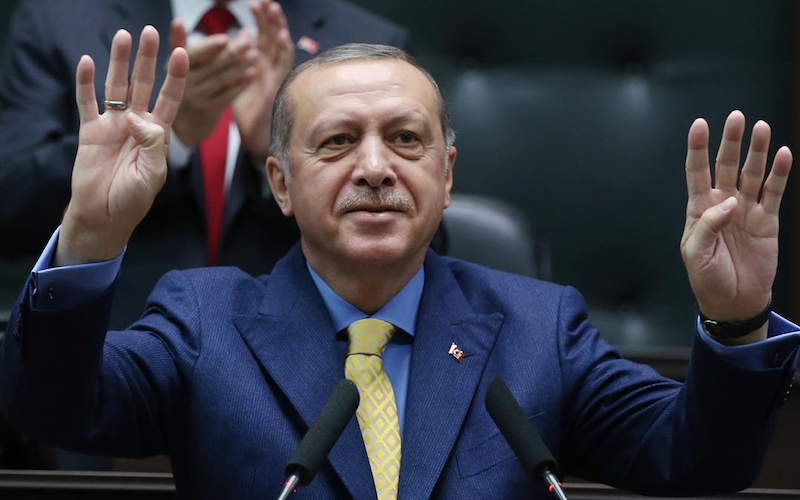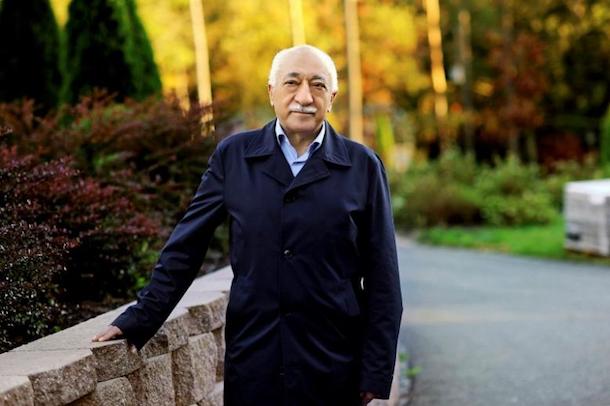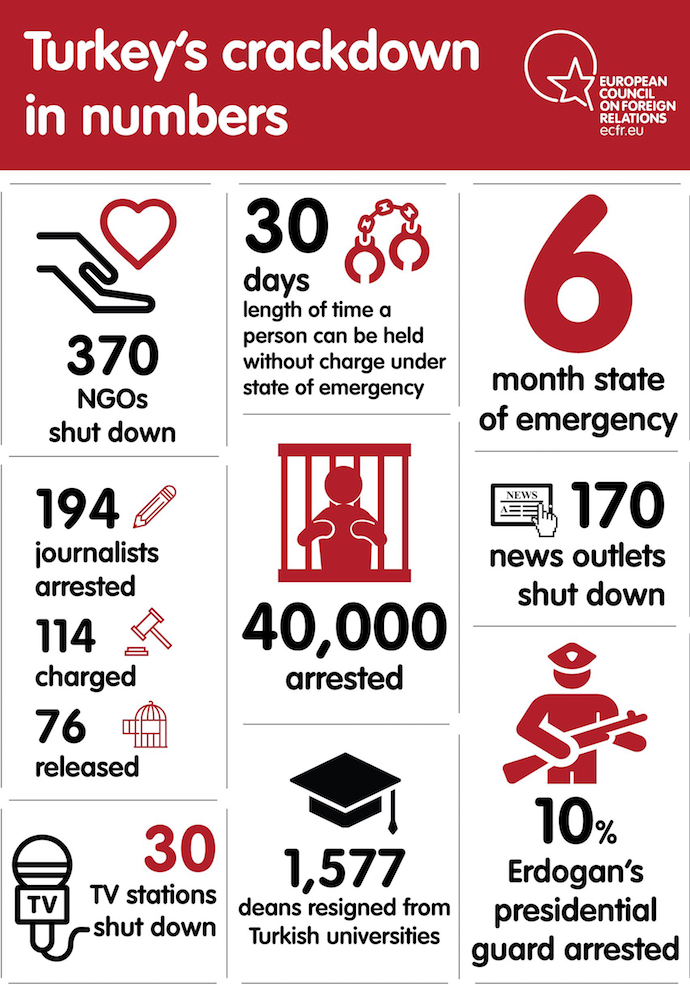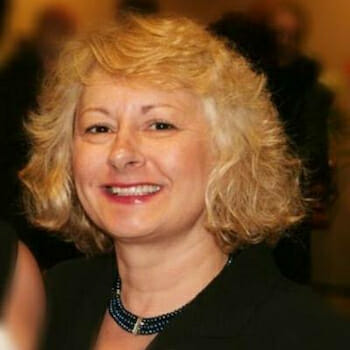
Erdogan: Self-Proclaimed Caliphate?
Turkish President Recep Tayyip Erdoğan’s slim success in the April 16, 2017 referendum election enhanced his power consistent with Mr. Erdoğan’s statements going back to 2014 when he aspired to become the next caliphate. The term caliphate has significant meaning in the Muslim world. A Caliph is a prophet sent by God to provide just governance over all of Islam. This is on the level of miracles. The caliphate was abolished by the secularization of Turkey 99 years ago.
What is a Caliphate?
In about 570 AD, the Prophet Muhammad, “peace be upon you,” was born in Mecca, Saudi Arabia, the ancestral home of the Levant. The Prophet Muhammad believed he had been instructed by the Angel Gabriele to serve as God’s prophet whose purpose was to act as a messenger who should teach.
The Prophet Muhammad institutionalized the doctrine of “One Ruler, One Authority, One Mosque,” whereby a caliphate is appointed by God to lead of all of Islam under a just system of Sharia governance.
Erdoğan’s Grand Plan
Mr. Erdogan belongs to Naqshbandi Tariqah, a major Sunni spiritual order of Sufism whose history traces back to the Prophet Muhammed, the origin of the caliphate and the Levantine.
In late October 2014 Mr. Erdoğan stated it was his “grand design to recreate the Ottoman caliphate with the help of the Sunni jihadist army.”
“Erdoğan used the image of the caliphate and traditional Islamic values to gain popularity in the Middle East, expecting to gain it all over the world,” observed Ali Vyacheslav Polosin, Deputy Director of the Fund for Support of Islamic Culture, Science and Education.
Mr. Polosin explained: “After Erdoğan became president he started positioning himself in image ads not only as the president of the Turkish Republic, but as a reader of the Quran, as though he radiates some nur, light. It is more an image of a caliph, a ruler of true believers, than the president of a republic, especially considering that Turkey has very great experience in this aspect. So the claims are not that groundless.”
In 2015 Abdurrahman Dilipak, a deep operative for the National Intelligence Organization (MİT), posing as a writer, stated in speech given to AKP members in Toronto, that by switching to an executive presidency from a parliamentary democracy, Mr. Erdoğan would assume the title of caliph.
At 94, Kadir Mısıroğlu, who has worked with Erdoğan since the 1980s, has been staunchly anti-secularist – his opinions dating back to the founder and first President of the Turkish Republic, Kemal Atatürk – claiming that Turkey’s incursions into Syria and Iraq will empower Mr. Erdoğan to resurrect the Ottoman Empire and declare the caliphate.
“In Saudi Arabia, Kuwait, other countries, the persona of Erdoğan is popular among Muslims and even ruling elites. That is why Turkey has its own game here,” opined Mujtaba Rahman, Europe practice head at Eurasia Group, and Julian Emanuel, in a Eurasia Risk 2015 analysis. A 2006 Gallup survey of Muslims living in Egypt, Morocco, Indonesia and Pakistan, two-thirds of respondents said they supported the goal of “unifying all Islamic countries” into a new caliphate.
But, most telling is the number of recruits IS gained when it reputedly assassinated its leader Abu Bakr al-Baghdadi who proclaimed himself caliphate. Regardless of ideology, individuals from around the world who felt repressed by their own governments, most of which were unable to guaranty their personal safety or sustainable infrastructures, rushed to join his army. The bottom line is that the concept of a caliphate is not a hard sell whether in an authoritative state, in under-developed Muslim countries or in developed countries where Muslims are more often than not stigmatized.
Conversely, Mr. Erdoğan’s campaign against the Turkish Kurds in Turkey and Syria does not bespeak of a prophet providing just governance. The Kurds are a Middle Eastern ethnic group, numbering 40 million worldwide; a majority of whom inhabit a contiguous area including parts of Iran, Southeastern Turkey and Northern Syria. While Kurds are overwhelmingly Muslim with the majority of Sunni descent, they are not of Levant descent but, so closely related to Iranian culture and linguistics that they refer to themselves as Iranian.
The Failed Coup Bolsters Mr. Erdoğan’s Plan
On July 15, 2016 Mr. Erdogan claimed victory over a failed coup d’état. Mr. Erdoğan was alerted to the coup by Russian Federation President Vladimir Putin, not his own intelligence service nor the military, NATO’s Communications and Information Agency, nor even the United States Intelligence Community.
The rapid response had all of the trappings of staged scene. Black ops forces appeared at the hotel where Mr. Erdoğan was located, dropping down the side of the building on rope-lines. Fighter jets broke the sound barrier as they flew over Istanbul and Ankara, and tanks immediately took to the streets. Several broadcast text messages were even sent from Mr. Erdoğan to Turkish cellphone users, calling them to the streets to defend their nation. Three hundred Turks lost their lives that night.

Mr. Erdoğan immediately blamed the coup on Fethullah Gulen, a Sunni Muslim spiritual leader with a worldwide following who is a Pennsylvania resident. The United States refused requests to extradite Mr. Gulen which weakened historical ties between Washington and Ankara. According to an anonymous source in the Intelligence Community, if Mr. Gulen had been involved the NSA would have picked up the chatter of an impending coup. Given the United States’ interest in a stable, democratized Turkey, it would have warned Mr. Erdoğan.
What really happened that night remains open to question but the truth remains that Mr. Erdoğan has capitalized upon the coup widening the diplomatic gap with Turkey’s Western allies and commitments.
Following the July 15, 2016 unsuccessful coup, Mr. Erdoğan called a state of emergency giving him the power to rule by decree, largely bypassing the legislative branch and rendering what remains of the judiciary fearful of making unbiased rulings.
The failed coup also ended the era of the co-existence with the parallel states. The main component of the parallel structures has traditionally been the Turkish army, which was constitutionally apolitical but, in reality, was determining Turkish political life. This privilege was given to the army during the Ottoman conquest and retained it during the formation of the Turkish Republic.
Over 140,000 people have been arrested, dismissed or suspended, press restrictions imposed, despite the government control over 90 percent of the Turkish media, journalists were imprisoned, and private property confiscated. There have been allegations of prisoners being tortured and even raped. Mr. Erdoğan cancelled three million Turkish passports to prevent citizens from exiting the country.

The April 16, 2016 Constitutional Referendum Election
On 10 December 2016, a constitutional referendum election with 18 amendments was called.
In every campaign Mr. Erdoğan has unabashedly articulated that his political aspirations extend beyond Turkey to all Muslims much as Mr. Putin has stated over and over again that his role is to protect all individuals of Russian ethnicity or from former U.S.S.R. satellite states. Mr. Erdoğan complained about the post-World War One downsizing of the Ottoman Empire from 20 million square kilometers to its current 780,000 square kilometers. Three years later, during the last years of Ottoman Empire, Sharia law and “the caliphate—the supreme politico-religious office of Islam, and symbol of the sultan’s claim to world leadership of all Muslims—was abolished,” and a secularized state formed.
Mr. Erdoğan instructed European Muslims, “Go live in better neighbourhoods. Drive the best cars. Live in the best houses. Make not three, but five children. Because you are the future of Europe. That will be the best response to the injustices against you.”
Even though less than 52% of Turkish voters approved the referendum, with the largest losses in Turkey’s major cities of Istanbul, Ankara and Izmir, the referendum bestowed unparalleled powers on Mr. Erdoğan’s Presidency: the elimination of a prime minister, the ability to dissolve the Turkish parliament, appoint five out of thirteen Supreme Court justices, and issue public decrees without parliamentary approval.
The election further bestowed upon Mr. Erdoğan the possibility of remaining in office until 2029, or even longer, due to a loophole included in constitutional amendments. This places Mr. Erdoğan one step closer to realizing his aspirations to be the next Caliph governing under Islamic law, a possible break with Shia Muslim states, the European Union and, ultimately even, NATO.
Immediately following his victory, Erdoğan visited the tomb of Mohammed’s companion Eyyub Al-Ansari Mehmet and the burial shrine of Ottoman Sultan Selim I. Selim I was the Ottoman Sultan who in 1517 defeated the Mamluk Sultanate in Egypt and thus became the caliph of the entire Muslim world.
It was reported that Mr. Erdoğan was overheard singing a Koranic verse from the First Surah known as al-Fātiḥah or “the Opener.” It is a prayer at the very beginning of the Quran, which acts as a preface of the Quran and implies that the book is for a person who is a seeker of truth—a reader who is asking a deity who is the only one worthy of all praise to guide him to a straight path. It is said to “encapsulate all of the metaphysical and eschatological realities of which human beings must remain conscious.”
European election monitors said the referendum did not meet international standards.
No doubt Mr. Erdoğan’s apparent claim as the next caliphate has further angered the Wahhabis, an Elite Saudi Sunni group which advocates that “One Ruler, One Authority, One Mosque” — the three pillars refer only to the Saudi king.
Geopolitical Security Implications
The Divided Shiite and Sunni Countries
The Sunni-Shia conflict was 1,400 years in the making, dating back to the years immediately after the Prophet Mohammed’s death in 632 when the two sides clashed over naming a successor. In the Middle East Sunnis outnumber Shiites five to one.
Only lran, Iraq, Azerbaijan and Bahrain have a Shia majority, although there are also significant Shia populations in Syria, Yemen, Lebanon, Kuwait, Syria and Qatar. Syrian President Bashar al-Assad and his family members are Shia Muslims while the IS opposition is Sunni dominated. While Yemen has been controlled by Sunni, in the ongoing proxy war Iran is backing Shia rebels while the Saudis are attempting to regain Sunni control.
Qatar represents the most recent proxy. A Saudi led Sunni contingency, including the United Arab Emirates, Egypt and Bahrain, imposed a comprehensive embargo and blockade of land, sea, and air routes against Qatar. The dispute arose from allegations that Qatar financed terrorism, including the Muslim Brotherhood favored by Mr. Erdoğan. While oil rich, Qatar lacks the other natural resources to provide sustenance and even employment; as 12 percent of Qatari rely on foreign employment. To fill grocery store shelves with food Turkey and Iran have sent 100’s of planeloads of food and supplies to provide for the Qatari. Now, on June 20, 2016, the group has imposed a list of 13 nonnegotiable condition that Qatar must comply with within 10 days, including expelling Turkey from its air force base in Qatar.
Mr. Erdoğan has denounced the embargo as “inhumane and against Muslim values.”
NATO, the European Union, and United States
A NATO member nation, Turkey has sought European Union membership since 2005. The early reasons for exclusion were more or less that ‘Turkey was too big, too poor and, above all, too Muslim to qualify.’ The refugee crisis began tilting toward, minimally, more favorable terms but, post-coup, when Mr. Erdoğan abandoned a constitutional democracy in favor of an authoritarian government, such as that of Mr. Putin, he basically has abandoned any aspirations of Western acceptance. The last signs that Mr. Erdoğan has given up on the EU is in his push to reinstate the death penalty; viewed as a human rights violation by the EU, and increasing tensions with NATO, whose regional peacekeeping operations are dependent upon Turkey’s central location.
The Balkans
According to an unconfirmed report by Turkey’s National Intelligence Organization, Russia and Turkey have agreed in principal that Russia would gain dominance in Orthodox countries in the Balkans, and Turkey would control Muslim dominated countries of Albania, Kosovo, Macedonia, and Bosnia.
“Turkey will have the opportunity of managing the new relations with the various Turkmen and Ottoman communities, while Russia (and Iran) will have the possibility of creating a large Asian economic community, which is designed to replace the symbiotic relationship between Europe and the United States,” opined foreign policy analyst Elia Valori Gioncarlo.
The European Commission on Foreign Relations has also raised this issue but with some skepticism.
Ankara and Moscow have engaged in warming relations. Russia has lifted the 2015 ban on imports of Turkish food, and the ban on Turkish workers in the construction sector, in tourism and in hotel businesses. This translates into a hefty amount of income for Ankara prior to the ban, Turkish food exports to Russia are worth more than €1 billion annually. But, this is nothing compared to the symbiotic oil relationship between the two countries. Moscow is looking for an alternative to Ukraine to run a Gazprom pipeline to the Black Sea.
Journalist Fareed Zakaria observed that Putinism consists of five fundamentals: religion, nationalism, social conservatism, state capitalism and government media control. “Returning to the values of religion” — in particular Orthodox Christianity — is a powerful theme in Putin’s agenda, with a global vision of “protecting persecuted Christians all over the world.” Replace “Christian” with “Muslim,” and one has Turkey’s ruling ideology.

